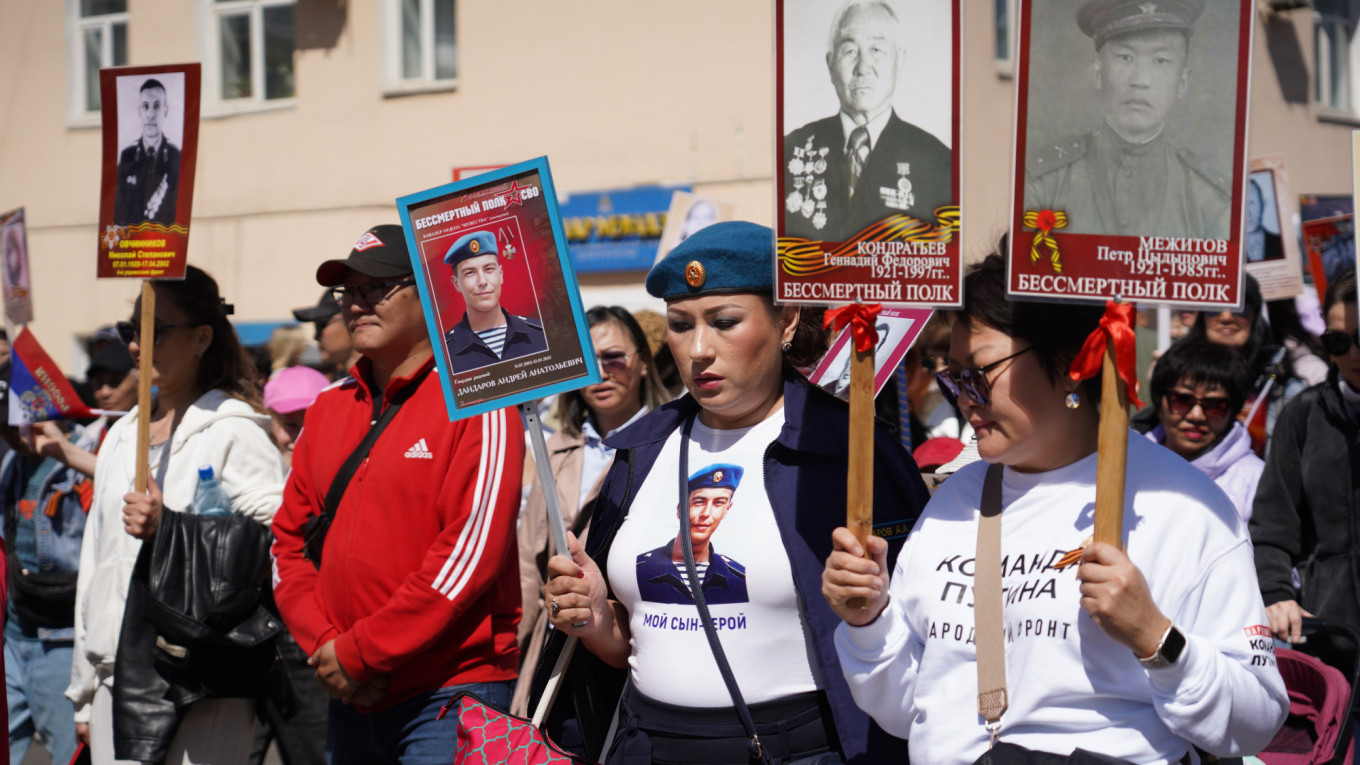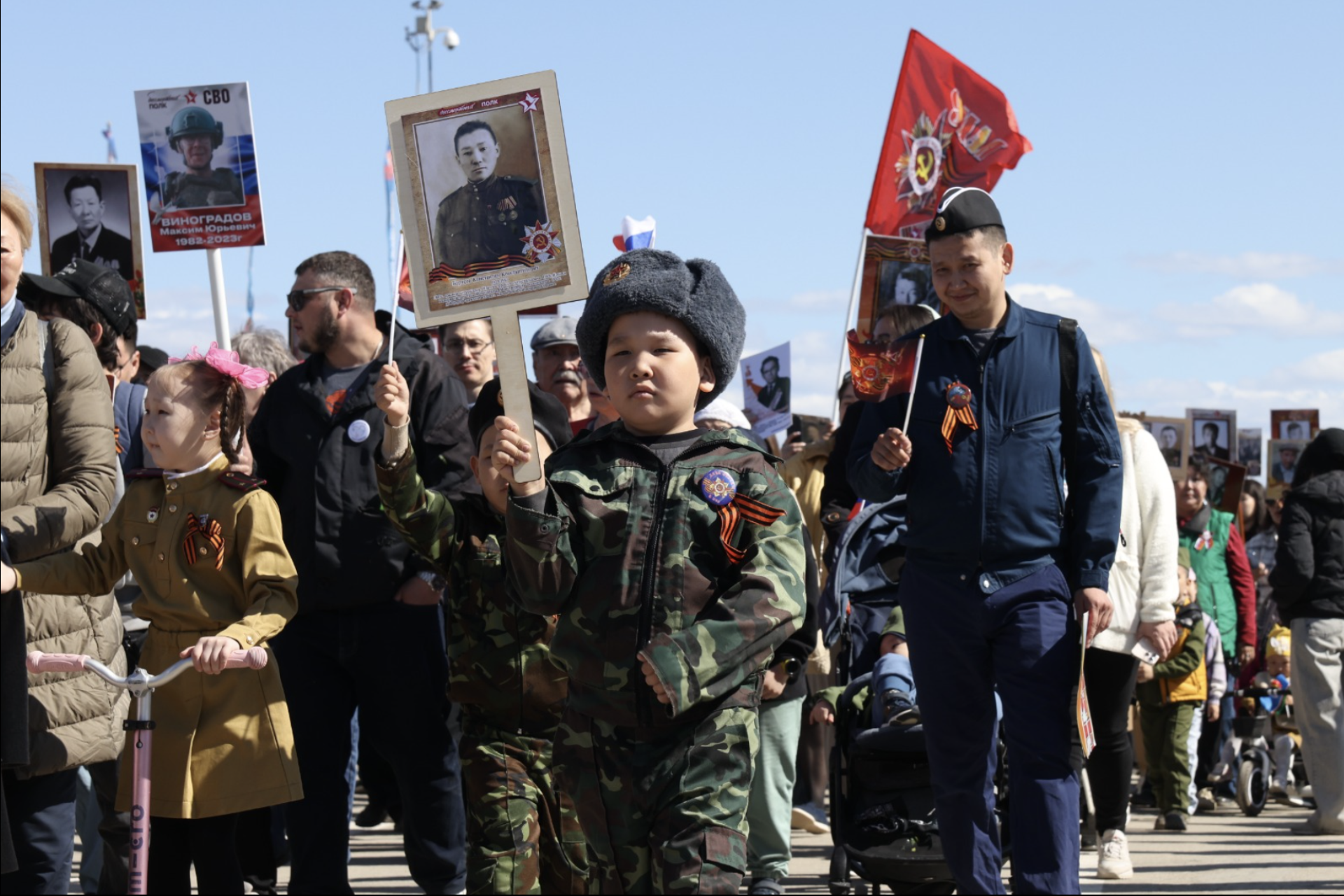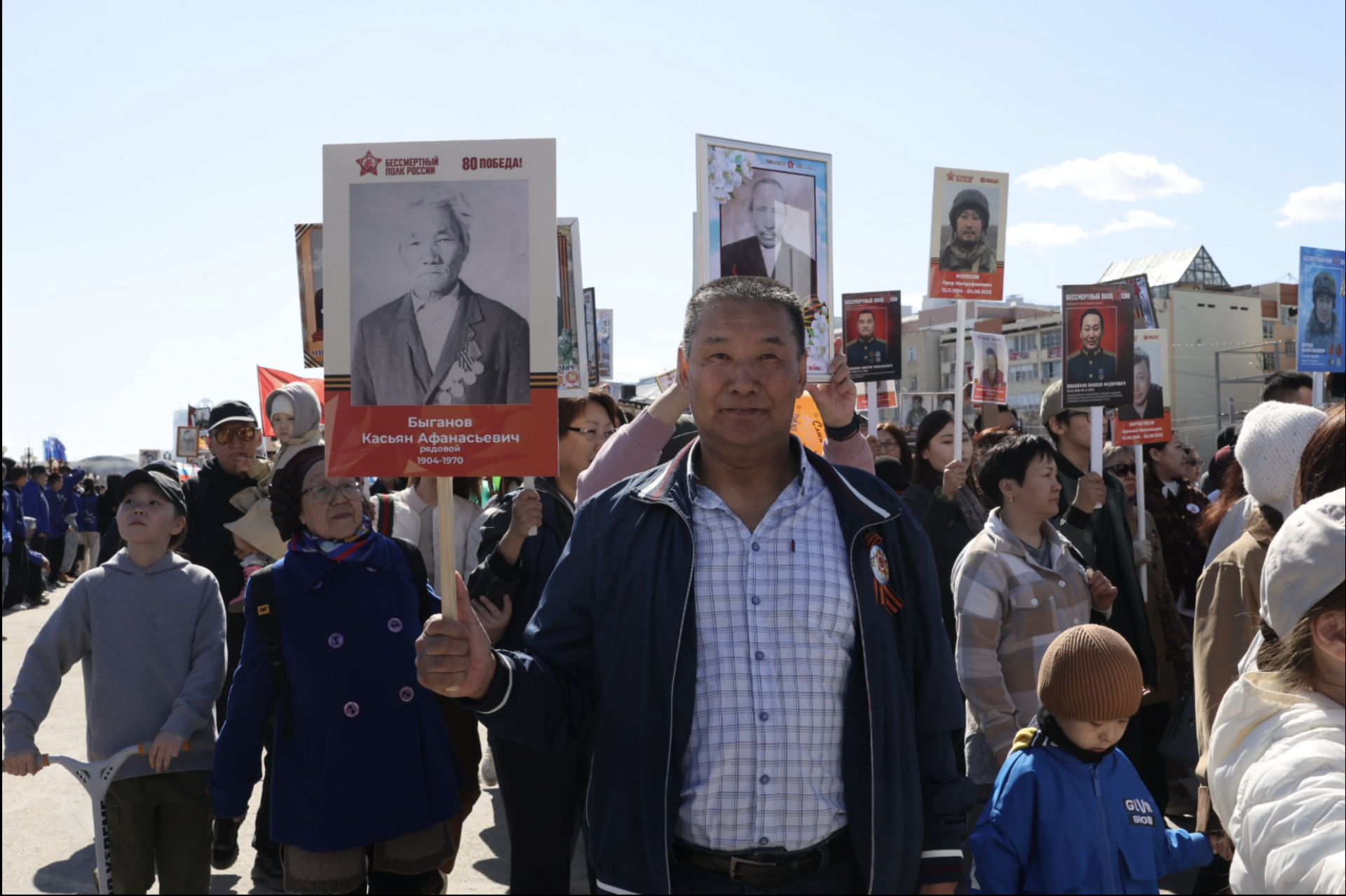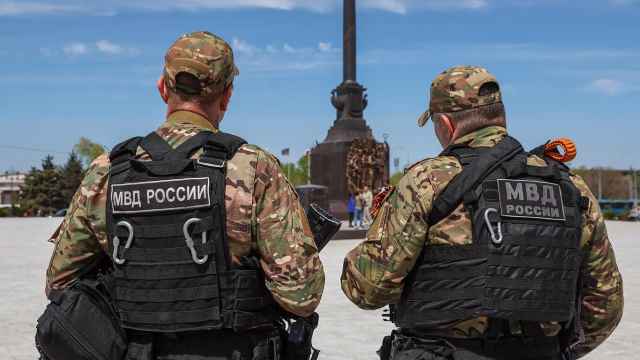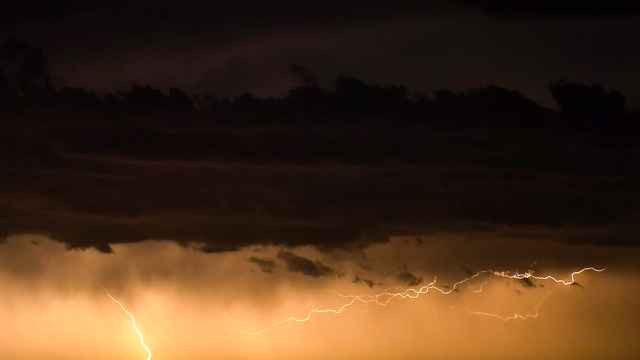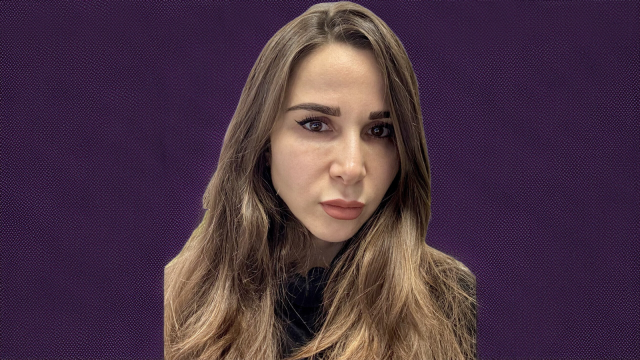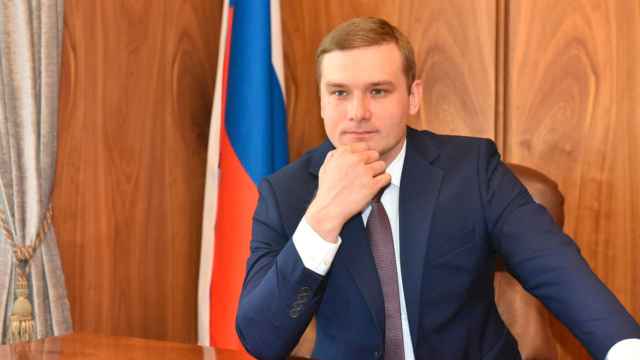Millions of Russians across the country joined in celebrations marking the 80th anniversary of the Soviet victory in World War II on Friday.
Beyond the main event on Red Square, capitals of Russia’s regions and ethnic republics — and even small villages — held military parades and air shows, while civilians marched in Immortal Regiment processions for the first time since Russia’s full-scale invasion of Ukraine in 2022.
Commemorations were held amid heightened security measures over fears of possible sabotage attacks. Mobile internet shutdowns were recorded in at least 31 Russian regions since Thursday evening, and spectators had to pass through metal detectors and undergo thorough searches to access closed-off celebration areas.
Though no major security incidents were reported Friday, the fighting in Ukraine still loomed over the day’s events, even as far away from the front lines as Siberia and the Far East.
This year’s Immortal Regiment processions, which were held in 57 regions of the country with tens of thousands of participants in each, were also joined in by relatives of Russian soldiers killed on the front lines in Ukraine in a rare act of public mourning sanctioned by the officials.
Born out of a grassroots movement, the Immortal Regiment was first held in the Siberian city of Tomsk in 2012. Originally, the procession was meant to allow descendants of deceased veterans to connect with their family history by symbolically marching on behalf of their relatives.
Overtaken by the Kremlin, the event has since been wielded as a propaganda tool meant to inflate Russia’s role in defending Nazi Germany and reinforce narratives of imperial revanchism, critics say.
Over the years, attendance at Immortal Regiment processions also became mandatory for many government employees as well as schoolchildren and university students.
In recommendations issued ahead of this year’s event, authorities advised participants to bring out pictures of relatives who served on the front lines or on the home front during World War II; survived concentration camps or a siege; and “soldiers killed in action in local armed conflicts on the territory of the Russian Federation and other countries.”
People carrying photos of loved ones killed on the battlefield in Ukraine since 2022 were spotted marching alongside those commemorating relatives who fought against Nazi Germany in the republics of Buryatia, Tyva and Sakha (Yakutia), as well as the Zabaikalsky, Irkutsk and Omsk regions, among others.
Soldiers demobilized from the front lines in Ukraine were also spotted in Immortal Regiment processions, often sporting military uniforms and medals and carrying portraits of relatives who fought in World War II.
In some regions, authorities installed booths where men attending Victory Day celebrations could sign a contract with the Defense Ministry to fight in Ukraine and Russia's military missions across Africa.
Regional heads, who oversaw local military parades across the country, drew parallels between the “Great Patriotic War” and the present-day “Special Military Operation” in their addresses to the public, reinforcing the Kremlin narrative that Russia is “fighting Nazis in Ukraine.”
“Our sacred duty to the fallen and living heroes is to preserve peace and not allow fascism to raise its head again. That is why your grandchildren and great-grandchildren have risen to defend the country today,” said Radiy Khabirov, the head of the Ural republic of Bashkortostan, which remains a countrywide leader in casualties in the Ukraine war.
“We firmly believe: ‘Our cause is just. Victory will be ours!’" Khabirov added, addressing still-living World War II veterans.
The head of the republic of Sakha, Aysen Nikolaev, expressed a similar sentiment, emphasizing the supposed historical and generational continuity between the two wars.
"[Today] the fight against fascism has united all Russians around our national leader, Vladimir Vladimirovich Putin. Eleven of the bravest sons of Yakutia were awarded the title of Hero of Russia and thousands were awarded [other] high state awards [for serving in Ukraine]," said Nikolaev.
Sakha, a resource-rich republic with a population of less than 1 million, lost over 30,000 people in World War II and at least 1,140 men in the war in Ukraine. Photos of soldiers from both of the wars could be spotted in the Immortal Regiment processions in the capital Yakutsk on Friday.
Yakutsk, a small city of just over 300,000 people, held at least 130 different events planned to mark Victory Day. These included a massive waltz with 5,500 dancing pairs made up of government workers, schoolchildren and students wearing military uniforms, as well as an Orthodox religious procession.
And on Thursday, Sakha-based diamond mining giant Alrosa announced that it would name its recently mined diamond, allegedly the largest in Russia’s history, “80 Years of Victory in the Great Patriotic War” to mark the occasion.
“Yakutsk never lags behind other cities when it comes to [demonstrating] patriotic fervor,” said Veronika Levchenkova of the Free Yakutia Foundation, the region’s largest Indigenous rights and anti-war group. “Who was all of it for? Of course, it was a show for the Kremlin.”
“Yakutsk is currently drowning in spring mud as it has for decades. The government [allegedly] has no money to fix that…but had the money to prepare for the parade,” Levchenkova told The Moscow Times.
Meanwhile, Free Yakutia, which amassed tens of thousands of supporters across the republic, said it has received many messages from residents of Sakha who find holding celebrations of any form “unacceptable” while fighting is still ongoing in Ukraine.
“Our audience is [made up of] people who think, so the messages we get about Victory Day celebrations are all one-sided, with people claiming that they recognize propaganda and misrepresentation [of history] in it,” said Levchenkova.
“We would want to believe that most people in the republic also recognize the indoctrination happening to them, but it is possible that most do not.”
A Message from The Moscow Times:
Dear readers,
We are facing unprecedented challenges. Russia's Prosecutor General's Office has designated The Moscow Times as an "undesirable" organization, criminalizing our work and putting our staff at risk of prosecution. This follows our earlier unjust labeling as a "foreign agent."
These actions are direct attempts to silence independent journalism in Russia. The authorities claim our work "discredits the decisions of the Russian leadership." We see things differently: we strive to provide accurate, unbiased reporting on Russia.
We, the journalists of The Moscow Times, refuse to be silenced. But to continue our work, we need your help.
Your support, no matter how small, makes a world of difference. If you can, please support us monthly starting from just $2. It's quick to set up, and every contribution makes a significant impact.
By supporting The Moscow Times, you're defending open, independent journalism in the face of repression. Thank you for standing with us.
Remind me later.



